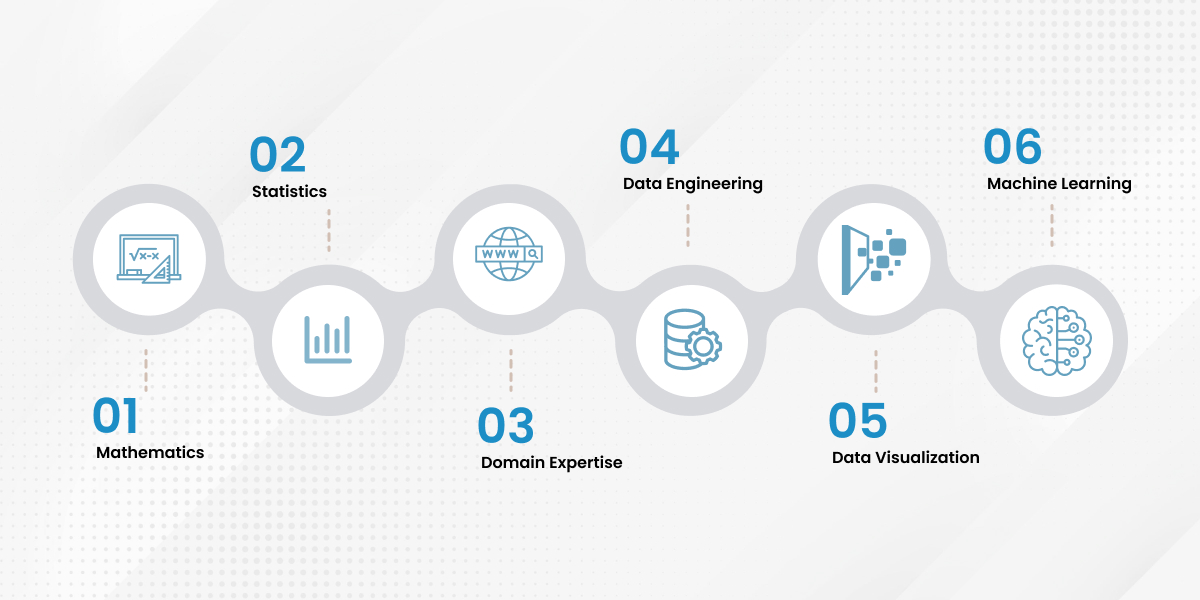Emerging Technologies
All You Need To Know About Emerging Technologies
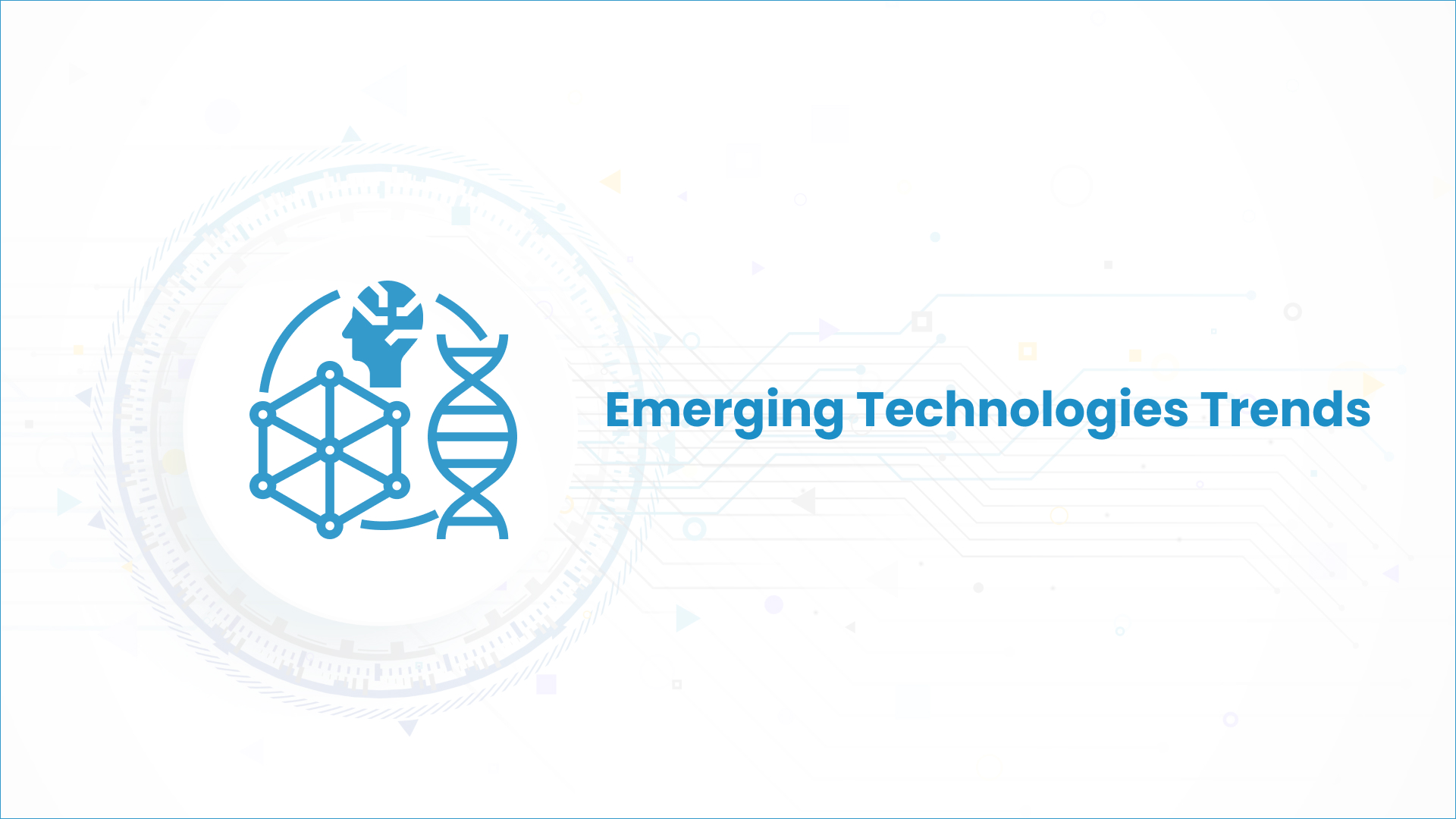
Emerging Technologies such as:
- Artificial Intelligence (AI)
- Data Science
- Machine Learning
- Deep Learning
- Robotic Process Automation (RPA)
- Blockchain Apps
- Internet of Things (IoT)
- Virtual Reality (VR)
- Augmented Reality (AR)
- Mixed Reality (MR)
- Low-code and No-code
- Cloud Computing
Artificial Intelligence:
Artificial intelligence is the simulation of human intelligence processes by machines, especially computer systems. Specific applications of AI include expert systems, natural language processing, speech recognition, and machine vision. Characteristics/meaning of AI
- Is the intelligence exhibited by machines.
- Is based on the premise that intelligence is not “real” or “human”.
- Mimics cognitive functions exhibited by humans.
Artificial Intelligence having three stages:
- Artificial Narrow Intelligence [ANI] – 2015Artificial General Intelligence [AGI] – 2022
- Artificial Super Intelligence [ASI] – 2050
Artificial Narrow Intelligence [ANI]
Artificial Narrow Intelligence [ANI] is limited to one or two functional areas for recognizing an object, it is not self-aware or self-conscious, and it appears to be making decisions; but it is the statistic/maths in action in the background. Artificial Narrow Intelligence [ANI] Examples
- Smartphone Apps
- Chess and AlphaGo
- Image Indentification Tools
- Speech Recognition Tools
- Self Driving System
- Google Translate
- Spam Filters
Artificial General Intelligence [AGI]
Artificial General Intelligence covers more than one functional area, such as reasoning, problem-solving, abstract thinking, etc. Artificial General Intelligence [AGI] Examples
- Multipurpose System
- System with human-level intelligence, reasoning, thinking, and decision-making.
- System that synthesize diverse information and decide actions.
Artificial Super Intelligence [ASI]
Artificial Super Intelligence [ASI] is expected to surpass human intelligence in 2050. Artificial Super Intelligence [ASI] Examples
- Super intelligent AI agents
- Systems that are masters at every skill, subject or discipline and are faster than the smartest humans
Artificial Intelligence: At a Glance
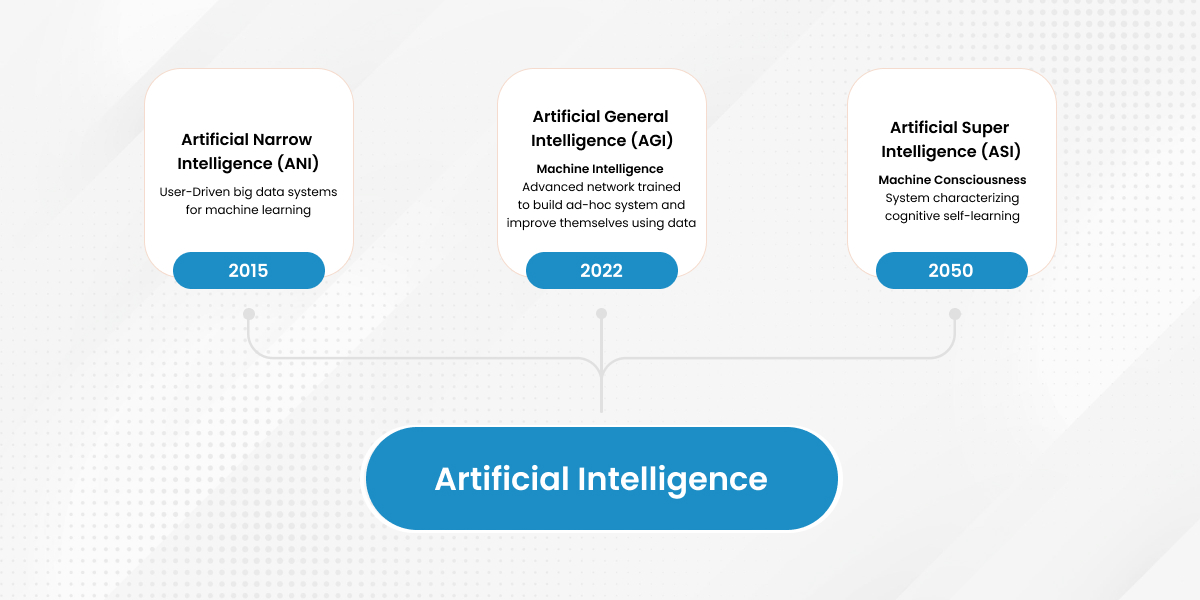
- Product Analysis
Enables companies to leverage data to reveal user engagement with products and services. - Image Recognition
Recognizes objects, places, people and actions in an image. - Speech Recognition
Allow humans to use their voice to communicate with software. - Language Translation
Translates a word or sentence from one language to another
What is Data Science?
Data Science is the field of study that deals with Modern Scientific Techniques, Statistical Methods, and algorithms to derive insights from vast volumes of data. Data science 25 years ago referred to gathering and cleaning datasets and then applying statistical methods to that data. In 2018, data science grew to a field that encompasses data analysis, predictive Analytics, data mining, business intelligence, machine learning, deep learning, and so much more. 
- Data Discovery Stage
Data discovery involves asking the right questions, identifying the business problems, finding the best solution and gathering correct data from relevant sources for analysis. - Data Preparation Stage
Data preparation deals with cleaning the data, finding the inconsistencies, tackling missing values, converting it into the right format and making it ready for analysis. - Exploratory Data Analysis (EDA) Stage
Analyze and visualize the data using different charts and graphs to find significant patterns and hidden trends that helps to understand the data better. - Data Modeling Stage
Use Classification, regression and algorithms to build machine learning models that can help predict and forecast future trends. - Interpret the Result (Output) StageValidate the model results, draw the final conclusions and check if the performance of the model is in line with the requirements.
Data Science Components
- Data Science Components means these are the base subjects for understanding Data Science
- We need to know Mathematics, Statistics, and Data Engineering subjects to learn Data Science
- We apply different Machine Learning algorithms to the data, and as a result, we get different analytical charts and data analysis reports; through these, we can visualize data which also known as Data Visualization
Data Science Languages
In the Data Science world, there are different Languages, but Python is the most popular language 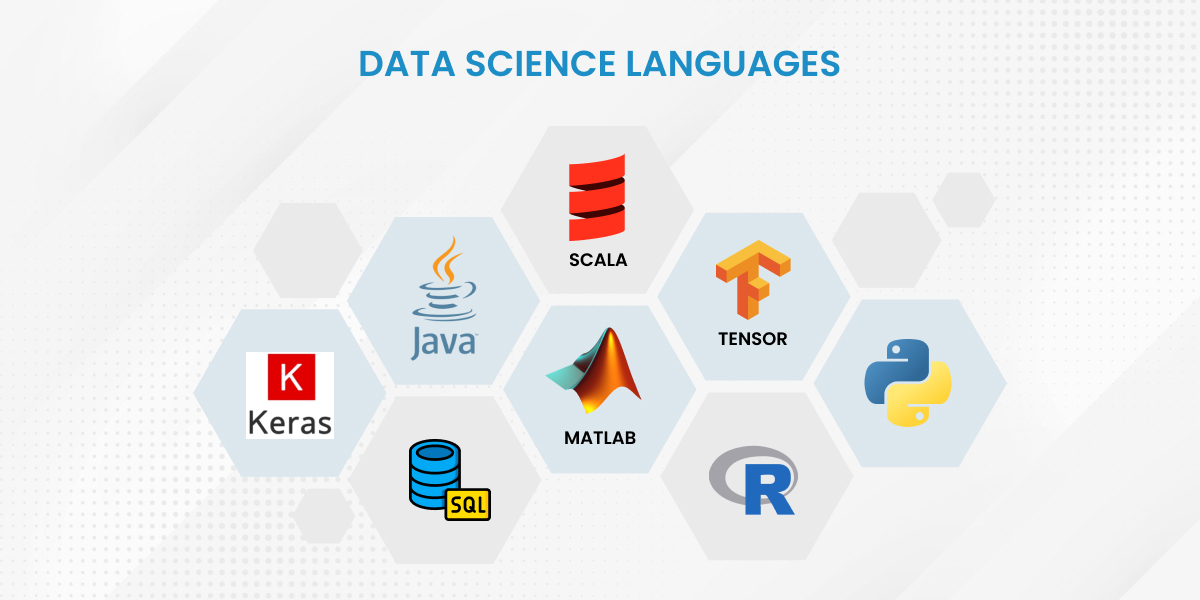
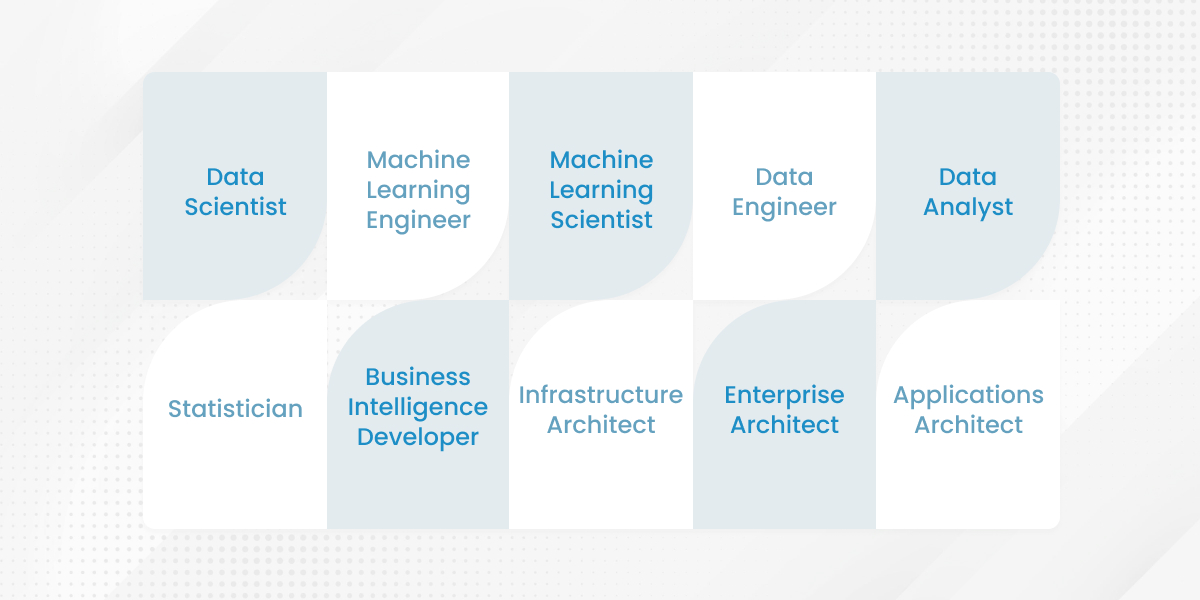
- Programming
- Machine Learning
- Math
- Analytics Tools
- Data Visualization
- Data Wrangling
- Business Acumen
1. Programming Skill
- Data Scientist should learn and master at least one programming language.
- Python is most preferred in data science
- The next widely used language is R
- Others include – JavaScript, Scala, SQL, Julia etc.
Python Programming Language Details
- Open source, easy-to-use language.
- General-purpose, dynamic language
- Supports multiple paradigms
- Very flexible programming language
- You can use Python for almost all the steps involved in data science
2. Machine Learning
- Learn techniques – supervised machine learning, decision trees, logistic regression, natural language processing etc.
- One crucial reason – “ High value predictions that can guide better decision and smart actions in real-time without human intervention”
Machine Learning Details
- Helps analyse large chunks of data
- Changes the way data extraction and interpretation works.
- Produces accurate results and analysis
- Machine Learning and Data Science works hand in hand.
3. Mathematics and Statistics
- Bedrock of any contemporary discipline of science.
- Major requirement for Data Science.
- Main topics – Calculus, Linear Algebra, Probability and Statistics
- Other math topics – Discrete Math, Graph theory, information theory etc.
4. Analytical Tools
- Helps you extract meaningful insights from data and provides useful frameworks for processing big data
- Analytics tools – SQL, Spark, Hadoop, Hive etc.
5. Data Visualization
- Interdisciplinary field that deals with the graphic representation of data
- Tools- Matplotib, Ggplot, D3.js
- Techniques used to communicate data or information by encoding it as visual objects that is contained in graphics.
6. Data Wrangling / Data Cleaning
- Process of gathering, selecting and transforming data to answer an analytical question
- Helps fasten the process of decision making
- Also known as data cleaning or “munging”
7. Business Acumen and Business Knowledge
- Plays an important role in structuring business data analytics
- Business knowledge –
- General Business Knowledge
- Industry-Specific Knowledge
- Company-Specific Knowledge
Conclusion
Emerging technologies are the up-and-coming technologies that are either new or in the developing stages. The term generally implies technologies that are to be available in the next five to ten years.
Some examples of such technologies in 2023 are AI, Data Science, ML, Robotic Process Automation, Deep Learning, Blockchain, IoT, VR, AR, Mixed Reality, Cloud computing, and many more. Today, we have discussed the role of artificial intelligence, machine learning, and Data science in depth.
If you are also looking forward to being ahead of the curve by integrating these technologies to your enterprise’s services, our Digital Enterprise Solutions can help you build robust systems that are future-ready.
Related Blogs
Recent Blogs
-
Future of Mobile Apps in the Car Rental Industry – 2025 and Beyond
-
Why Your Business Needs a Collaboration portal in 2025
-
MuleSoft in Healthcare: Transforming the Patient Management Experience
-
E-Commerce Integrations You Cannot Miss in 2024-25
-
Decode Supplier Management Success with Advanced Vendor Portals
















